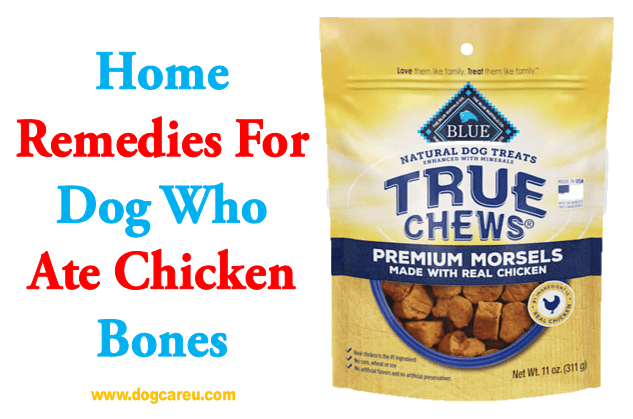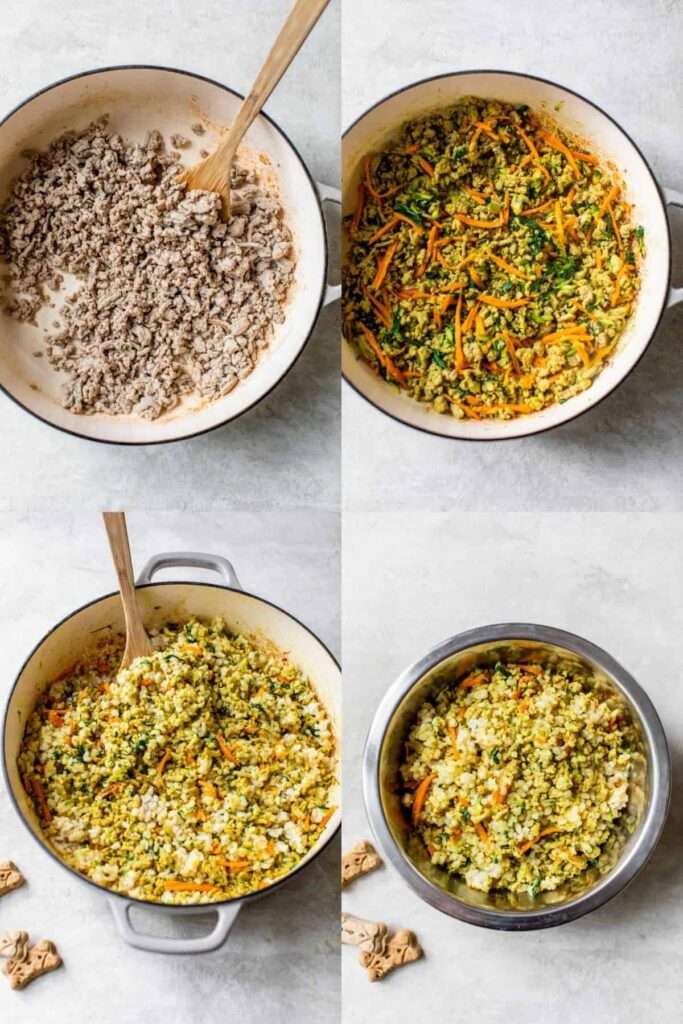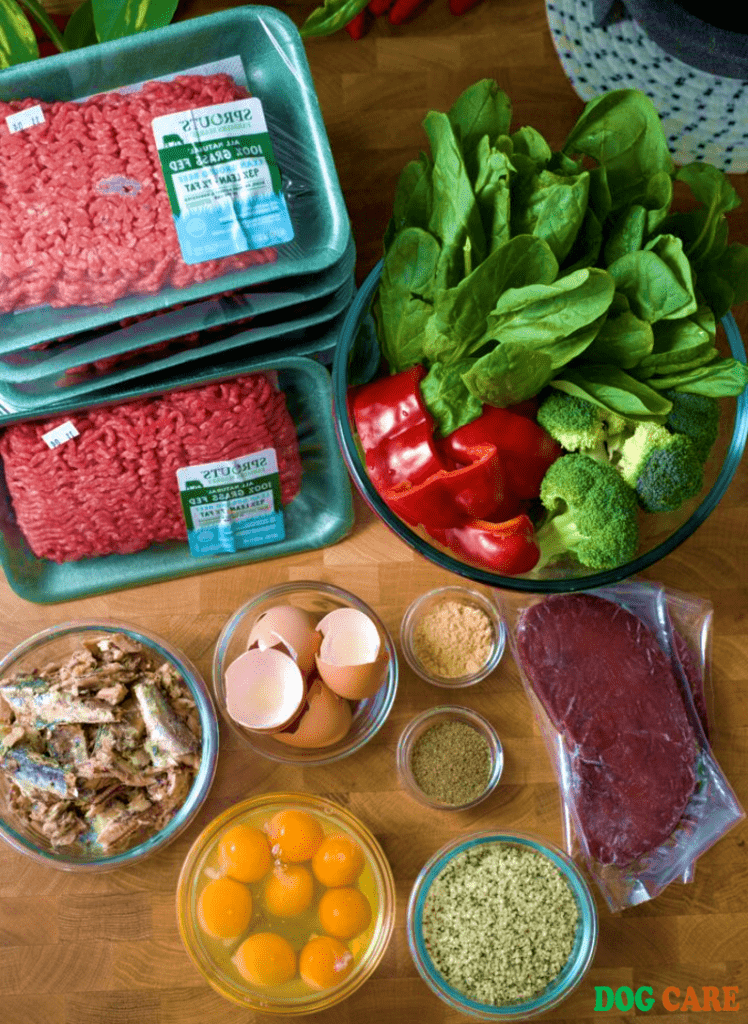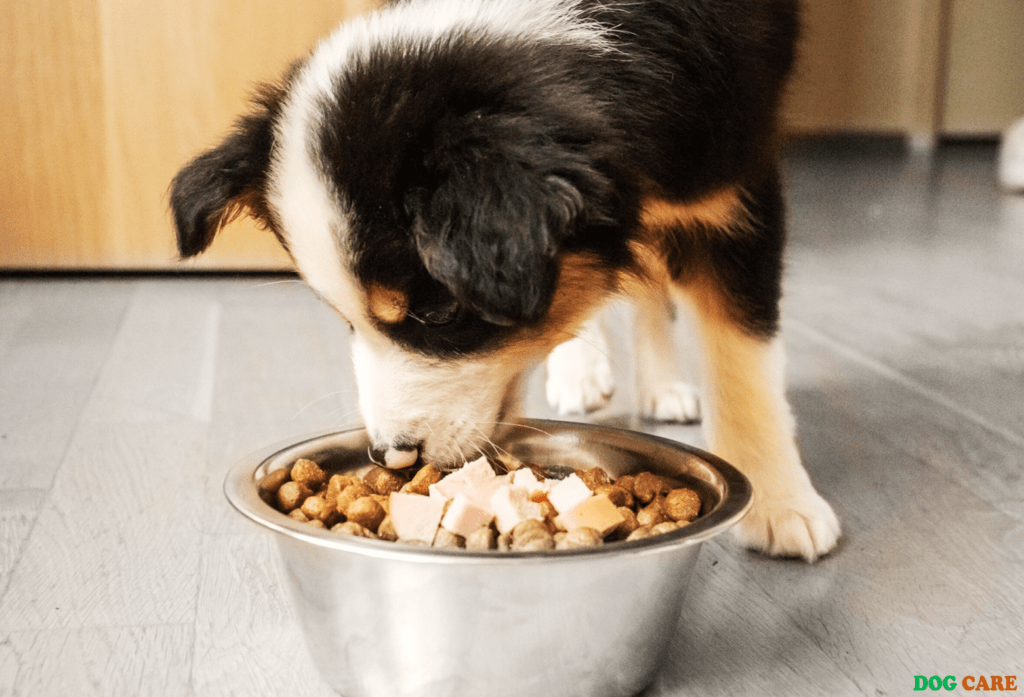Home Remedies for Dog Who Ate Chicken Bones – If your dog ate chicken bones, it is crucial to seek veterinary attention immediately. The ingestion of chicken bones can be very dangerous for dogs as they can splinter and cause internal injuries, such as punctures or obstructions in their digestive tract.
However, there are a few things you can do at home to help alleviate symptoms and assist in your dog’s recovery. Remember, these remedies should only be used as a temporary measure while you seek professional help. Always consult your veterinarian before attempting any home remedies.

Identifying Signs Of Discomfort
When your beloved furry friend has accidentally consumed chicken bones, it is crucial to be aware of the signs that indicate their discomfort. Dogs are unable to digest chicken bones properly, which can lead to serious health issues. By recognizing these signs, you can quickly intervene and provide the necessary home remedies to alleviate their discomfort.
Change In Behavior
Dogs are known for their vibrant personalities, and any sudden change in behavior can be a cause for concern. Keep an eye out for signs that your dog may be experiencing discomfort due to ingesting chicken bones. Some of the common changes in behavior include:
- Restlessness
- Lethargy
- Loss of appetite
- Attempting to vomit
- Excessive drooling
If you notice any of these behaviors in your dog, it is essential to take immediate action to address their discomfort.
Whimpering Or Yelping
One of the most obvious signs of discomfort in dogs is when they start whimpering or yelping. This vocalization is their way of communicating pain or distress. Pay attention to any sudden noises your dog may make, especially during movement or when pressure is applied to their abdomen.
If you observe your dog whimpering or yelping, it is crucial to take steps to relieve their discomfort as soon as possible. Delaying treatment could lead to complications and further health issues.
Remember, identifying the signs of discomfort is the first step in addressing the problem your dog faces after consuming chicken bones. By promptly recognizing these signs, you can administer appropriate home remedies to ease their pain and ensure their well-being.
Step-by-step First Aid
If your dog has ingested chicken bones, you can provide immediate home remedies to help. First, assess the situation and observe your dog for any signs of distress. Then, offer them a small amount of bread to help bind the bones.
Finally, monitor their behavior and contact a vet for further instructions if necessary.
Assess The Situation
When your dog has ingested chicken bones, it’s crucial to act quickly and assess the situation. Observe your dog’s behavior and look for any signs of distress or discomfort. Examine the mouth and throat for any visible bone fragments. Stay calm and focused as you proceed with the necessary first aid steps.
Check For Obstruction
Next, it’s important to check for any obstruction caused by the chicken bones. This can help determine the severity of the situation and guide your actions accordingly. Keep in mind that if the bones have passed through the esophagus, the risk of complications decreases. However, if there is an obstruction, it’s essential to act promptly to prevent potential harm to your dog.
To check for obstruction, pay close attention to the following:
- Listen for excessive drooling or gagging sounds.
- Watch for difficulty swallowing or retching.
- Take note of any changes in appetite or behavior.
If you notice any of these signs, it’s crucial to provide immediate first aid to help your dog. Failure to address an obstruction can lead to serious complications, such as perforation or blockage of the gastrointestinal tract.
Home Remedies For Immediate Relief
When it comes to your furry friend’s well-being, immediate relief is crucial if they’ve ingested chicken bones. Fortunately, there are home remedies that can help address this issue. It’s important to note that these remedies are not substitutes for professional veterinary care, but they can offer some relief to your dog while you seek further assistance.
Feeding Bread Or Pasta
In the event that your dog has ingested chicken bones, feeding them small amounts of bread or pasta can help cushion the bones and assist in their passage through the digestive system. The soft texture of these foods can help mitigate any potential damage caused by the bones.
Pumpkin Puree
Pumpkin puree is known for its digestive benefits in dogs. Offering your dog a couple of tablespoons of pumpkin puree can aid in easing any discomfort caused by ingesting chicken bones. The fiber content in pumpkin can help promote healthy digestion and facilitate the movement of the bones through the digestive tract.
Seeking Veterinary Assistance
If your dog has ingested chicken bones, it is crucial to seek veterinary assistance immediately. While there are home remedies that can help in certain situations, it is important to consult a vet to ensure your dog’s safety and well-being. A vet will have the expertise and knowledge to determine the severity of the situation and provide the necessary guidance and treatment.
Consulting A Vet
When your dog has consumed chicken bones, it is essential to consult a veterinarian without delay. Veterinarians are trained professionals who can assess and evaluate the situation accurately. They will be able to provide the most suitable course of action tailored to your dog’s specific needs.
X-ray Examination
An x-ray examination is often required to determine the exact location and potential damage caused by the ingested chicken bones. X-rays can help veterinarians identify any bone fragments that may have traveled through the digestive system and assess if they pose a threat to your dog’s health. This non-invasive procedure provides valuable insights to guide the next steps in the treatment process.
If the x-ray results reveal that the bones have caused damage or are stuck in your dog’s digestive tract, prompt surgical intervention might be necessary. The vet may also recommend additional medical interventions such as endoscopy or ultrasound to further evaluate your dog’s condition.
Remember, time is of the essence in these situations, so it’s important not to delay seeking veterinary assistance. Early intervention increases the chances of a positive outcome and minimizes potential complications.
Prevention Measures
Preventing dogs from ingesting chicken bones is crucial to their health and well-being. By taking the appropriate precautions, you can ensure your furry friend stays safe and avoid potential emergencies. Here are some effective prevention measures to implement in your home.
Pet-proofing The Home
Dogs are naturally curious creatures, and their exploration often leads them to hazardous situations. Pet-proofing your home is an essential step in keeping your dog away from chicken bones. Here’s how you can achieve this:
- Store leftovers or food waste securely in airtight containers or ziplock bags.
- Keep your garbage can in a cabinet or use a childproof lock to prevent access.
- Avoid leaving chicken bones or other hazardous food items on the counter or within your dog’s reach.
- Close and secure any doors, cabinets, or drawers that contain potentially hazardous substances or objects.
- Regularly inspect your home for any loose or fallen chicken bones and promptly dispose of them.
Proper Waste Disposal
Properly disposing of chicken bones and other potentially harmful waste is crucial in preventing your dog from accessing them. Here’s how you can ensure safe waste disposal:
- Wrap chicken bones and other hazardous food waste in multiple layers of newspaper or plastic bags before disposing of them.
- Place the wrapped waste in a sturdy trash bag and tie it securely to prevent any leakage or odor.
- Consider using a designated dog-proof trash can or storing the waste in a locked outdoor bin to further prevent access.
- Empty and clean your indoor and outdoor trash cans regularly to minimize any lingering odor.
- If you have a compost bin, ensure it is secured and out of your dog’s reach.
Implementing these prevention measures can significantly reduce the risk of your dog ingesting chicken bones and facing potential complications. Remember, it’s always better to be proactive in safeguarding your pet’s health.
Frequently Asked Questions Of Home Remedies For Dog Who Ate Chicken Bones
What Can I Give My Dog To Help Pass A Chicken Bone?
You should NOT give your dog anything to help pass a chicken bone. It’s best to consult with a veterinarian immediately to prevent any potential health risks or complications.
How Long After Eating Chicken Bones Would A Dog Get Sick?
A dog may get sick within 24 hours of eating chicken bones. It can cause issues like choking, punctured intestines or blockages. Always monitor your dog’s behavior and contact a vet if you notice any signs of illness.
What Can I Give My Dog To Help Digest Bones?
Feeding your dog a small amount of pureed pumpkin can help aid in the digestion of bones. The fiber in the pumpkin can assist in moving bone fragments through the digestive system. Always consult with your veterinarian before giving anything to your dog.
What If My Dog Eats A Chicken Bone But Seems Fine?
If your dog eats a chicken bone and appears to be fine, monitor them closely for any signs of distress or discomfort. However, it’s crucial to consult your veterinarian as soon as possible, as chicken bones can cause serious health issues, such as internal injuries or blockages.
Conclusion
It’s crucial to act quickly if your dog has ingested chicken bones. These home remedies can help to alleviate any discomfort and prevent potential health issues. However, always consult with a veterinarian for professional advice and guidance. Remember, your furry friend’s well-being is a top priority.
Stay informed and take proactive measures to keep them safe and healthy.


